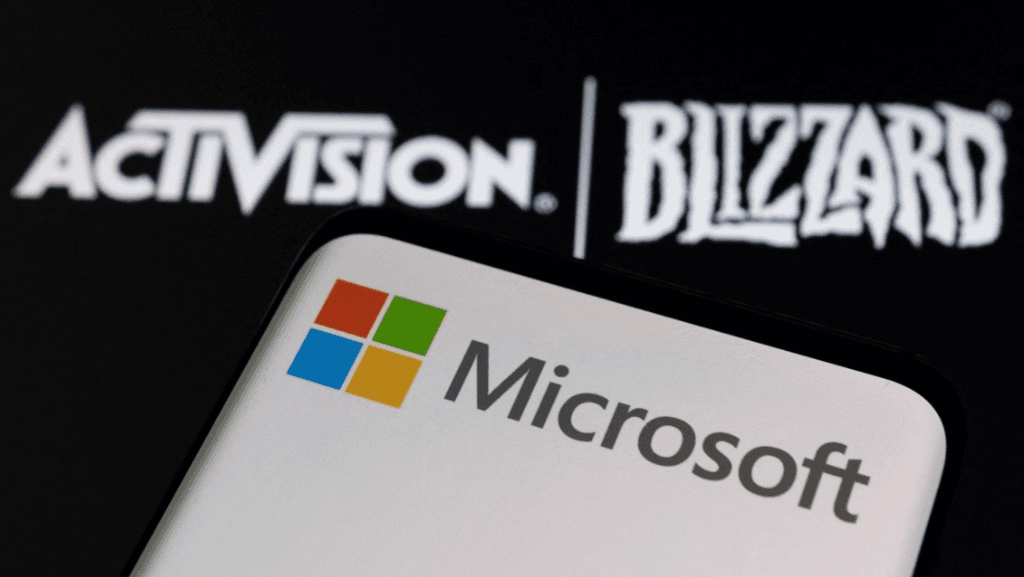
Microsoft’s Acquisition of Activision Blizzard: Legal Implications, Antitrust Challenges, and the Future of Big Tech M&A
Analysis on the Global Regulatory Landscape, Antitrust Law, and Compliance Risks In Microsoft's $68.7 Billion Gaming Deal
Microsoft’s proposed acquisition of Activision Blizzard, one of the largest in tech history valued at $68.7 billion, has raised significant legal, regulatory, and antitrust concerns across multiple jurisdictions. As a legal expert analyzing the transaction, it is essential to understand the broader implications this deal holds for competition law, merger control, and the evolving regulatory scrutiny on Big Tech.
Understanding the Transaction
Microsoft, already a dominant player in the global gaming and software market, announced in early 2022 its intent to acquire Activision Blizzard, the publisher behind blockbuster titles such as Call of Duty, World of Warcraft, and Candy Crush. The move was aimed at enhancing Microsoft’s Xbox ecosystem, cloud gaming infrastructure, and its presence in the metaverse.
From a corporate law standpoint, the acquisition was structured as an all-cash transaction, with Microsoft offering $95 per share to Activision shareholders. However, such a mega-deal naturally triggered rigorous review under merger control regulations.
Antitrust Scrutiny Across Jurisdictions
United States – FTC Intervention
The Federal Trade Commission (FTC) filed a legal complaint to block the merger, citing potential harm to market competition, particularly in the cloud gaming and subscription-based gaming services sectors. The FTC argued that post-merger, Microsoft could limit access to Activision’s titles, undermining rivals and stifling innovation—key considerations under U.S. antitrust law.
European Union – Conditional Approval
The European Commission approved the deal with remedies, particularly focused on cloud gaming. Microsoft was required to license Activision titles to competitors under fair, reasonable, and non-discriminatory (FRAND) terms. This marked a milestone in how the EU is approaching digital markets regulation.
United Kingdom – CMA's Objections and Final Clearance
Initially, the UK’s Competition and Markets Authority (CMA) blocked the acquisition over concerns in the cloud gaming sector. However, after Microsoft restructured the deal and proposed additional concessions (including divesting cloud gaming rights in certain jurisdictions), the CMA granted final approval.
Legal Challenges and Compliance Risks
This acquisition showcases the evolving complexity of cross-border M&A and the need for robust legal due diligence. Key legal considerations included:
-
Data protection compliance under global privacy laws.
-
IP and licensing implications, especially regarding post-merger usage rights.
-
Employment law and potential restructuring.
-
Securities law disclosures and shareholder litigation risks.
Law firms advising on such a high-profile deal were tasked with navigating multijurisdictional antitrust filings, managing regulatory risk, and aligning corporate governance frameworks.
Impact on the Legal and Gaming Landscape
This acquisition sets a precedent for future tech mergers by showcasing how antitrust law is being redefined in the digital economy. Regulators are no longer focusing solely on price impacts but are also evaluating access, innovation, and platform dominance.
For legal professionals, especially those specializing in M&A, competition law, gaming law, and technology law, this case is a crucial study on strategic deal-making in the face of global regulatory scrutiny.
Conclusion
Microsoft’s acquisition of Activision Blizzard underscores the increasing convergence between tech law, antitrust enforcement, and corporate strategy. As lawyers, regulators, and stakeholders continue to analyze the aftershocks of this deal, it serves as a blueprint for how future mega-mergers will be shaped by legal frameworks, compliance strategies, and global regulatory collaboration.
For any enquiries or information, contact info@thelawreporters.com or call us on +971 52 644 3004. Follow The Law Reporters on WhatsApp Channels